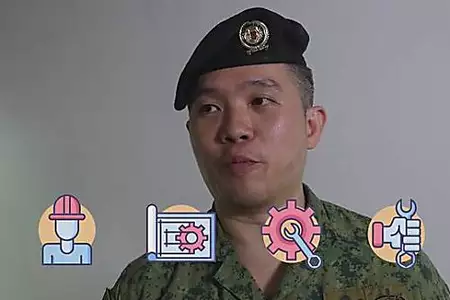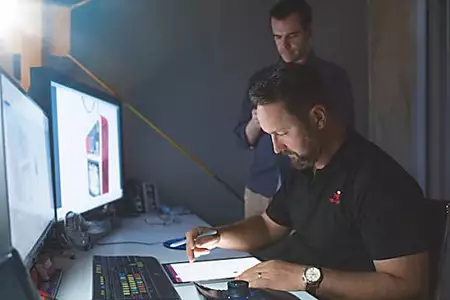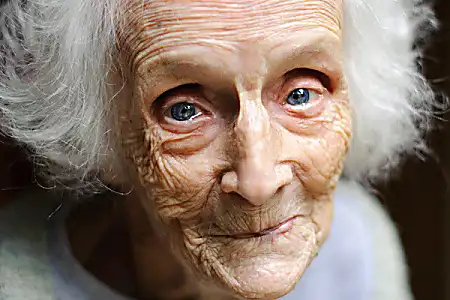- Joined
- Jun 27, 2018
- Messages
- 31,515
- Points
- 113
Skip Navigation
Main navigation and Meta Navigation
To Home
Meta Main Navigation
Singapore Edition International Edition
HIV data leak: What we know about Mikhy Farrera Brochez
SingaporeHIV data leak: What we know about Mikhy Farrera Brochez
image: data:image/gif;base64,R0lGODlhAQABAAAAACH5BAEKAAEALAAAAAABAAEAAAICTAEAOw==
File photo of blood being drawn during an HIV test. (Photo: AFP)
By Afifah Darke
28 Jan 2019 07:44PM(Updated: 28 Jan 2019 09:39PM)
Share this content
SINGAPORE: The Ministry of Health (MOH) on Monday (Jan 28) announced that the HIV-positive status and personal information of 14,200 people from Singapore’s HIV registry were leaked online by US citizen Mikhy Farrera Brochez, who had previously worked here as a lecturer in two polytechnics.
READ: HIV-positive status of 14,200 people leaked online
Brochez, who was deported in April last year, was jailed in 2016 for lying about his HIV status to gain an employment pass.
The 32-year-old, who was also convicted of fraud and drug-related offences, was sentenced to 28 months’ jail.
Here’s what we know about him:
HOW DID BROCHEZ LEAK THE INFORMATION?
Advertisement
SCROLL TO CONTINUE WITH CONTENT
SCROLL TO CONTINUE WITH CONTENT
Brochez was the romantic partner of Ler Teck Siang, a male Singaporean doctor who was the former head of the National Public Health Unit at the Ministry of Health (MOH) between March 2012 and May 2013.
According to court documents, the couple started living together in Singapore in 2008. They got married in New York City on Apr 24, 2014.
READ: Ex-lecturer charged with lying about HIV status for Employment Pass
As head of MOH's National Public Health Unit, Ler had authority to access information in the HIV Registry as required for his work, said MOH.
Ler, who resigned in January 2014, is believed to have mishandled the information and is suspected of not having complied with the policies and guidelines on the handling of such confidential information.
In May 2016, MOH lodged a police report after receiving information that Brochez was in possession of confidential information that appeared to be from the HIV Registry.
Police searched the couple's properties and relevant material was seized as well.
In May 2018, after Brochez had been deported from Singapore, MOH received information that he still had part of the records. While the information did not appear to have been made public, MOH lodged a police report and contacted the affected individuals to inform them.
On Jan 22 this year, MOH was notified by the police that Brochez may still have more information from the HIV Registry, and had leaked it online.
HOW DID BROCHEZ ENTER SINGAPORE?
Ler helped Brochez, who was HIV-positive, dupe the Ministry of Manpower (MOM) into issuing the American an employment pass.
On two separate occasions, Ler gave a sample of his own blood to be submitted so that Brochez could hide his HIV status.
READ: ‘I am sorry’: Gan Kim Yong says health ministry providing support to HIV sufferers affected by data leak
The first instance was in March 2008 for a compulsory medical test required by the MOM for issuing the employment pass.
Brochez, who suspected he was HIV-positive, knew that he would not be granted an employment pass if MOM knew his medical status, court documents showed.
Ler suggested submitting his blood in Brochez's name to MOM in order to yield a negative result.
On the morning of Mar 13, Ler drew his own blood at home and stored it in a test tube.
Ler, who was a locum general practitioner at My Family Clinic at Commonwealth that day, brought the test tube to work with him.
When Brochez visited the clinic that evening for a blood test, Ler labelled the test tube with Brochez's particulars and submitted it for testing.
As a result, the test came back negative and MOM issued an employment pass to Brochez.
In October 2013, MOM received information that Brochez was HIV positive and directed him to cancel the personalised employment pass he had obtained in Feb 2011.
Brochez responded by saying that he had been falsely accused and told MOM he would supply "proof of being free of HIV".
READ: HIV data leak a 'criminal act that should be condemned': Action for AIDS
To prevent the pass from being cancelled, the couple repeated the ruse they had used in 2008 at the clinic Ler was working at at that time.
As a result, MOM allowed him to retain his pass.
According to court documents, Brochez said he and Ler were in love and the only way for them to be together was to commit the offences due to the “discriminatory” laws.
He also claimed that he posed no public health risk as he had been taking antivirals since 2008.
WHAT ELSE DID HE FAKE?
When police raided Brochez's residence, they seized several certificates purportedly issued to him, said court documents.
This included a linguistics degree from Vanderbilt University, a Master’s degree in developmental and child psychology as well as a doctorate in psychology and education from the University of Paris. A professional teaching certificate was also seized.
READ: Doctor on trial for helping HIV-positive boyfriend deceive MOM
Investigations revealed that all the certificates were forged and that Brochez neither attended the institutions nor obtained the qualifications.
He had used the certificates to apply for jobs with educational institutions in Singapore.
Authorities also found a Bahamian passport with the name Malatesta da Farrera-Brochez in a safe.
Though the passport bore the same birth date and photograph of Brochez as shown in his US passport, police confirmed that it was a fake.
During his work in Singapore, Brochez received multiple awards and recognition for teaching excellence. He also published articles in scientific journals and books on child psychology.
Brochez has also represented Singapore at international conferences for academia and research.
In a 2010 interview with a local newspaper, Brochez claimed that he was enrolled in Princeton University at the age of 13. However, he transferred to Vanderbilt University in his first year because he felt the latter offered better linguistic courses.
In the interview, Brochez said he could converse in eight languages, including Hebrew and Spanish, saying that he was "a gifted child".
Brochez claimed he was a successful "laboratory rat" of his mother, a Dr Theresa King, who was purportedly a renowned professor of child and adolescent psychology in the UK.
"My mother is a really big influence in my life. I would not have made it without all her help and guidance," he had said in the interview.
However, according to British daily The Independent, there was no psychologist with such qualifications under the name given by Brochez.
When The Independent contacted a UK-registered psychologist who qualified under the name given by Brochez, the news site was told that Brochez was not her son, and that she did not specialise in any of the relevant areas.
Source: CNA/ad(aj)
Tagged Topics
Share this content
More stories for you
Get the Channel NewsAsianewsletter in your inbox
SUBSCRIBE
Advertisement
More information about Channel News Asia
jump to top of page
Sections
About Us
Advertise with us
Get the news that matters in your inbox every morning!
Please enter your email address
I consent to the use of my personal data by Mediacorp and the Mediacorp group of companies (collectively "Mediacorp") to send me marketing and advertising materials in relation to goods and services of Mediacorp and its business partners and for research and analysis
SUBSCRIBE
Follow our news
Experience news with our apps
Copyright© Mediacorp 2019. Mediacorp Pte Ltd. All rights reserved.
image: https://secure-sg.imrworldwide.com/...ttps://www.channelnewsasia.com/news/singapore

image: https://rp.gwallet.com/r1/cm/p46

Read more at https://www.channelnewsasia.com/new...-we-know-about-mikhy-farrera-brochez-11175940
Main navigation and Meta Navigation
To Home
Meta Main Navigation
- OpenAll SectionsAll SectionsClose
Singapore Edition International Edition
HIV data leak: What we know about Mikhy Farrera Brochez
SingaporeHIV data leak: What we know about Mikhy Farrera Brochez
image: data:image/gif;base64,R0lGODlhAQABAAAAACH5BAEKAAEALAAAAAABAAEAAAICTAEAOw==
File photo of blood being drawn during an HIV test. (Photo: AFP)
By Afifah Darke
28 Jan 2019 07:44PM(Updated: 28 Jan 2019 09:39PM)
Share this content
SINGAPORE: The Ministry of Health (MOH) on Monday (Jan 28) announced that the HIV-positive status and personal information of 14,200 people from Singapore’s HIV registry were leaked online by US citizen Mikhy Farrera Brochez, who had previously worked here as a lecturer in two polytechnics.
READ: HIV-positive status of 14,200 people leaked online
Brochez, who was deported in April last year, was jailed in 2016 for lying about his HIV status to gain an employment pass.
The 32-year-old, who was also convicted of fraud and drug-related offences, was sentenced to 28 months’ jail.
Here’s what we know about him:
HOW DID BROCHEZ LEAK THE INFORMATION?
Advertisement
SCROLL TO CONTINUE WITH CONTENT
SCROLL TO CONTINUE WITH CONTENT
Brochez was the romantic partner of Ler Teck Siang, a male Singaporean doctor who was the former head of the National Public Health Unit at the Ministry of Health (MOH) between March 2012 and May 2013.
According to court documents, the couple started living together in Singapore in 2008. They got married in New York City on Apr 24, 2014.
READ: Ex-lecturer charged with lying about HIV status for Employment Pass
As head of MOH's National Public Health Unit, Ler had authority to access information in the HIV Registry as required for his work, said MOH.
Ler, who resigned in January 2014, is believed to have mishandled the information and is suspected of not having complied with the policies and guidelines on the handling of such confidential information.
In May 2016, MOH lodged a police report after receiving information that Brochez was in possession of confidential information that appeared to be from the HIV Registry.
Police searched the couple's properties and relevant material was seized as well.
In May 2018, after Brochez had been deported from Singapore, MOH received information that he still had part of the records. While the information did not appear to have been made public, MOH lodged a police report and contacted the affected individuals to inform them.
On Jan 22 this year, MOH was notified by the police that Brochez may still have more information from the HIV Registry, and had leaked it online.
HOW DID BROCHEZ ENTER SINGAPORE?
Ler helped Brochez, who was HIV-positive, dupe the Ministry of Manpower (MOM) into issuing the American an employment pass.
On two separate occasions, Ler gave a sample of his own blood to be submitted so that Brochez could hide his HIV status.
READ: ‘I am sorry’: Gan Kim Yong says health ministry providing support to HIV sufferers affected by data leak
The first instance was in March 2008 for a compulsory medical test required by the MOM for issuing the employment pass.
Brochez, who suspected he was HIV-positive, knew that he would not be granted an employment pass if MOM knew his medical status, court documents showed.
Ler suggested submitting his blood in Brochez's name to MOM in order to yield a negative result.
On the morning of Mar 13, Ler drew his own blood at home and stored it in a test tube.
Ler, who was a locum general practitioner at My Family Clinic at Commonwealth that day, brought the test tube to work with him.
When Brochez visited the clinic that evening for a blood test, Ler labelled the test tube with Brochez's particulars and submitted it for testing.
As a result, the test came back negative and MOM issued an employment pass to Brochez.
In October 2013, MOM received information that Brochez was HIV positive and directed him to cancel the personalised employment pass he had obtained in Feb 2011.
Brochez responded by saying that he had been falsely accused and told MOM he would supply "proof of being free of HIV".
READ: HIV data leak a 'criminal act that should be condemned': Action for AIDS
To prevent the pass from being cancelled, the couple repeated the ruse they had used in 2008 at the clinic Ler was working at at that time.
As a result, MOM allowed him to retain his pass.
According to court documents, Brochez said he and Ler were in love and the only way for them to be together was to commit the offences due to the “discriminatory” laws.
He also claimed that he posed no public health risk as he had been taking antivirals since 2008.
WHAT ELSE DID HE FAKE?
When police raided Brochez's residence, they seized several certificates purportedly issued to him, said court documents.
This included a linguistics degree from Vanderbilt University, a Master’s degree in developmental and child psychology as well as a doctorate in psychology and education from the University of Paris. A professional teaching certificate was also seized.
READ: Doctor on trial for helping HIV-positive boyfriend deceive MOM
Investigations revealed that all the certificates were forged and that Brochez neither attended the institutions nor obtained the qualifications.
He had used the certificates to apply for jobs with educational institutions in Singapore.
Authorities also found a Bahamian passport with the name Malatesta da Farrera-Brochez in a safe.
Though the passport bore the same birth date and photograph of Brochez as shown in his US passport, police confirmed that it was a fake.
During his work in Singapore, Brochez received multiple awards and recognition for teaching excellence. He also published articles in scientific journals and books on child psychology.
Brochez has also represented Singapore at international conferences for academia and research.
In a 2010 interview with a local newspaper, Brochez claimed that he was enrolled in Princeton University at the age of 13. However, he transferred to Vanderbilt University in his first year because he felt the latter offered better linguistic courses.
In the interview, Brochez said he could converse in eight languages, including Hebrew and Spanish, saying that he was "a gifted child".
Brochez claimed he was a successful "laboratory rat" of his mother, a Dr Theresa King, who was purportedly a renowned professor of child and adolescent psychology in the UK.
"My mother is a really big influence in my life. I would not have made it without all her help and guidance," he had said in the interview.
However, according to British daily The Independent, there was no psychologist with such qualifications under the name given by Brochez.
When The Independent contacted a UK-registered psychologist who qualified under the name given by Brochez, the news site was told that Brochez was not her son, and that she did not specialise in any of the relevant areas.
Source: CNA/ad(aj)
Tagged Topics
Share this content
More stories for you
- HIV data leak a 'criminal act that should be condemned': Action for AIDS
Toggle share menu - ‘I am sorry’: Gan Kim Yong says health ministry providing support to HIV sufferers affected by data leak
Toggle share menu - HIV-positive status of 14,200 people leaked online
Toggle share menu
image: https://images.outbrainimg.com/transform/v3/eyJpdSI6IjRiMWEwOTUwNDFhNTVlMWMxZDU5NzMzOTJiYTFkODYzZDIwMGZmNjkzN2YwODY5MjEyODdlNDBjMTY2YTE3YjEiLCJ3IjozMDAsImgiOjIwMCwiZCI6MS41LCJjcyI6MCwiZiI6NH0.webp
 Jan 2019 - CH 8 News Tonight 晚间新闻 - Sun 20 Jan 2019
Jan 2019 - CH 8 News Tonight 晚间新闻 - Sun 20 Jan 2019
image: https://sin.creativecdn.com/images?id=21ab6d29558ec0131f65e4c796f1ab056a694a7a&w=1200&h=627&o=314569&st=g2&fid=v2vHkhANw9P7C4Tvi7aN&tdc=sin
Kitchen Warehousekitchenwarehouse.com.au
Get the Channel NewsAsianewsletter in your inbox
SUBSCRIBE
Advertisement
More information about Channel News Asia
jump to top of page
Sections
About Us
Advertise with us
Get the news that matters in your inbox every morning!
Please enter your email address
I consent to the use of my personal data by Mediacorp and the Mediacorp group of companies (collectively "Mediacorp") to send me marketing and advertising materials in relation to goods and services of Mediacorp and its business partners and for research and analysis
SUBSCRIBE
Follow our news
Experience news with our apps
Copyright© Mediacorp 2019. Mediacorp Pte Ltd. All rights reserved.
image: https://secure-sg.imrworldwide.com/...ttps://www.channelnewsasia.com/news/singapore
image: https://rp.gwallet.com/r1/cm/p46
Read more at https://www.channelnewsasia.com/new...-we-know-about-mikhy-farrera-brochez-11175940


 Aloysius Pang ‘precious’ to the family: Brother
Aloysius Pang ‘precious’ to the family: Brother The 15 Most Important Financial Decisions You’ll Ever MakeTrendingstock Today
The 15 Most Important Financial Decisions You’ll Ever MakeTrendingstock Today Jalan Jalan 帶你去走走
Jalan Jalan 帶你去走走 Casinos Don't Expect You To Do This. But They Can't Stop You. Free Appdailydealsreview.com
Casinos Don't Expect You To Do This. But They Can't Stop You. Free Appdailydealsreview.com 听范文芳和陈邦鋆如何遵守家规! Fann Wong and Andie Chen finds it tough to keep up with their house rules!
听范文芳和陈邦鋆如何遵守家规! Fann Wong and Andie Chen finds it tough to keep up with their house rules! The easiest way to manage group bills on holidaysFinch
The easiest way to manage group bills on holidaysFinch
 Maintenance and Engineering Support - Basic Mini-tary Training
Maintenance and Engineering Support - Basic Mini-tary Training How AI can provide tangible value to your small businessSmarter Business™
How AI can provide tangible value to your small businessSmarter Business™ Jan 2019 - CH 8 News Tonight 晚间新闻 - Wed 23 Jan 2019
Jan 2019 - CH 8 News Tonight 晚间新闻 - Wed 23 Jan 2019 Why search engine marketing is so important for SMEsSmarter Business™
Why search engine marketing is so important for SMEsSmarter Business™ Shocking Link Between Joint Pain & Turmericthehealthreports24.com
Shocking Link Between Joint Pain & Turmericthehealthreports24.com